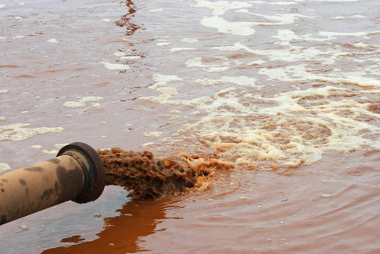THE Hydrosphere – from the Greek hydro, which means Water – is the portion of the terrestrial sphere composed of water in solid, liquid and gaseous states. Therefore, rivers and seas as well as glaciers and air humidity are part of this layer.
Water has an unparalleled importance for humans and other forms of life on our planet, as every living being needs water to survive. A proof of this importance is the fact that more than 70% of the Earth's surface is formed by water. Of course we're just talking about the surface, that is, the outer portion of the world, because if we consider the whole volume of the planet, this proportion will decrease.
In addition to being used for direct consumption, water has other importance and uses, one of which is the supply of food and natural resources, such as the fish we find in rivers, lakes and seas. In addition, people use water as a source of energy (through hydroelectric plants), transport (waterways), as a way to prepare food and as a means to sanitize themselves.
Although the water element (H2O) being extremely abundant on our planet, its proper form for consumption – drinking water – does not follow the same rule. About 97% of all the water in the world is in salt form, being found in the seas, and of the remaining 3%, most are in the form of glaciers in the ice caps and mountains, as well as in the moisture in the air and soils. Still, of the water available for consumption, a relatively large amount is somehow polluted or unfit for living beings.
For this reason, it is extremely important that this natural resource is better preserved. However, humanity has been spreading practices that will lead to their scarcity, through the pollution of rivers and lakes, the use irresponsible, directing watercourses to agriculture, which is not always subsistence, among others questions.

Pollution of watercourses is one of the main problems of today
Pollution of the seas and oceans is also another problem, because, although we do not consume seawater, we need it, mainly, to carry out certain activities, such as fishing and others elements. Furthermore, if the marine ecosystem were to change, life on Earth could be put at risk. An important example of this is algae, which are the Earth's main oxygen suppliers: extinct, the maintenance of life forms that depend on this element will be threatened, including the men.
Therefore, the preservation of the hydrosphere is a duty of all people, as well as of governments and international authorities.
By Rodolfo Alves Pena
Graduated in Geography


